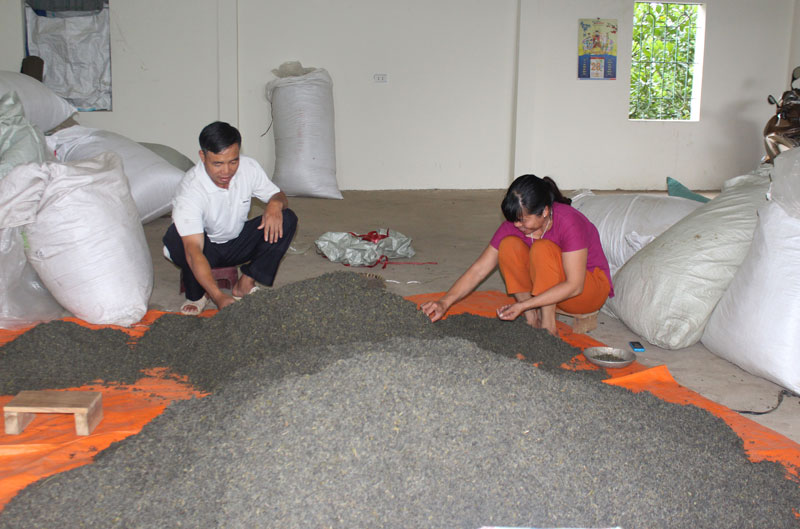


Tea is an industrial plant that has a product lifespan of over 20 years
with high production efficiency. Therefore, in recent years, although the
locality has been doing garden renovation, they still keep the area of tea
plants. In addition, to implement the project on the development of raw
material tea areas of the province, Tan Thanh was identified as one of the key
communes of Luong Son district to build Lac Thuy - Luong Son tea area, forming
the oriented production area of raw materials of about 900 hectares.
Taking us to visit the tea material area of My Tan village, Ms. Pham Thi
Nguyet, the Secretary of the village Party Communist Branch confirmed: tea is
still the key crop of My Tan village. There are 170 households but 120
households out of them plant teas with the total area of 21.6 hectares.
Currently, there are 3 tea varieties in tea plantations, that are Phu Ho tea,
shan tea, mid-land tea. These are the traditional tea varieties, which have
been planted in the village since 1968. These varieties are suitable for
weather conditions and soil here. To be convenient for the processing, about
85% of tea growing households in the village have equipped tea drying machines.
The advantages of tea plants are easy to care, the local people have experience
in growing and taking care of tea, so the yield can reach at about 10 tons / hectare. The output of My Tan tea
is quite stable with the prices of fresh tea leaves at 6,000 VND / kg; Type 1
tea is priced at 90,000 VND / kg, Type 2 tea is priced at 70,000 VND / kg.
Thanks to tea trees, the average income per capita of the village in 2018 is 22
million VND, the rate of poor households is reduced to 2%.

85% of households in My Tan village, Tan Thanh commune (Luong Son) invested
in tea drying machine to ensure the processing of tea products.
At present, in order to raise the value of tea quality, Tan Thanh commune
is taking care of investing in improving quality and output, paying attention
to changing the method of tea production and processing tea from traditional
one to VietGAP standardized production.